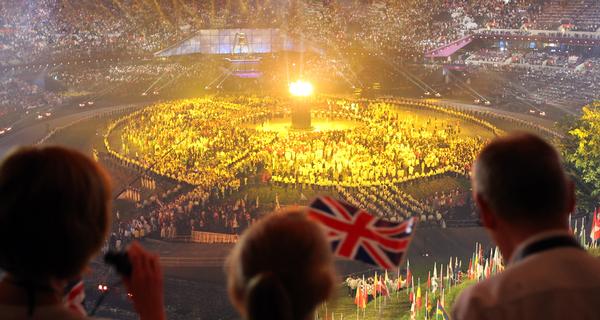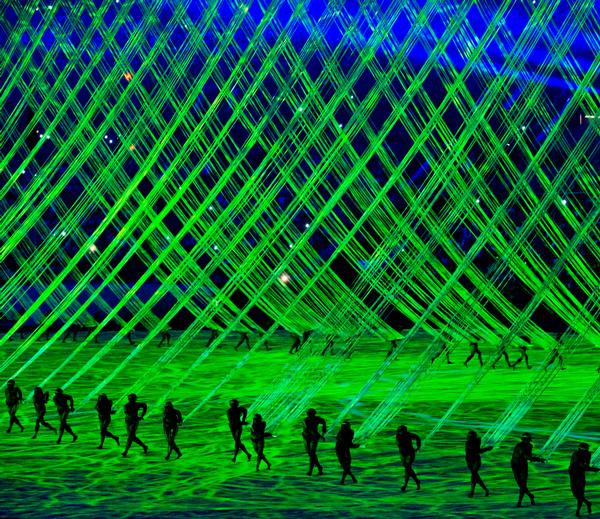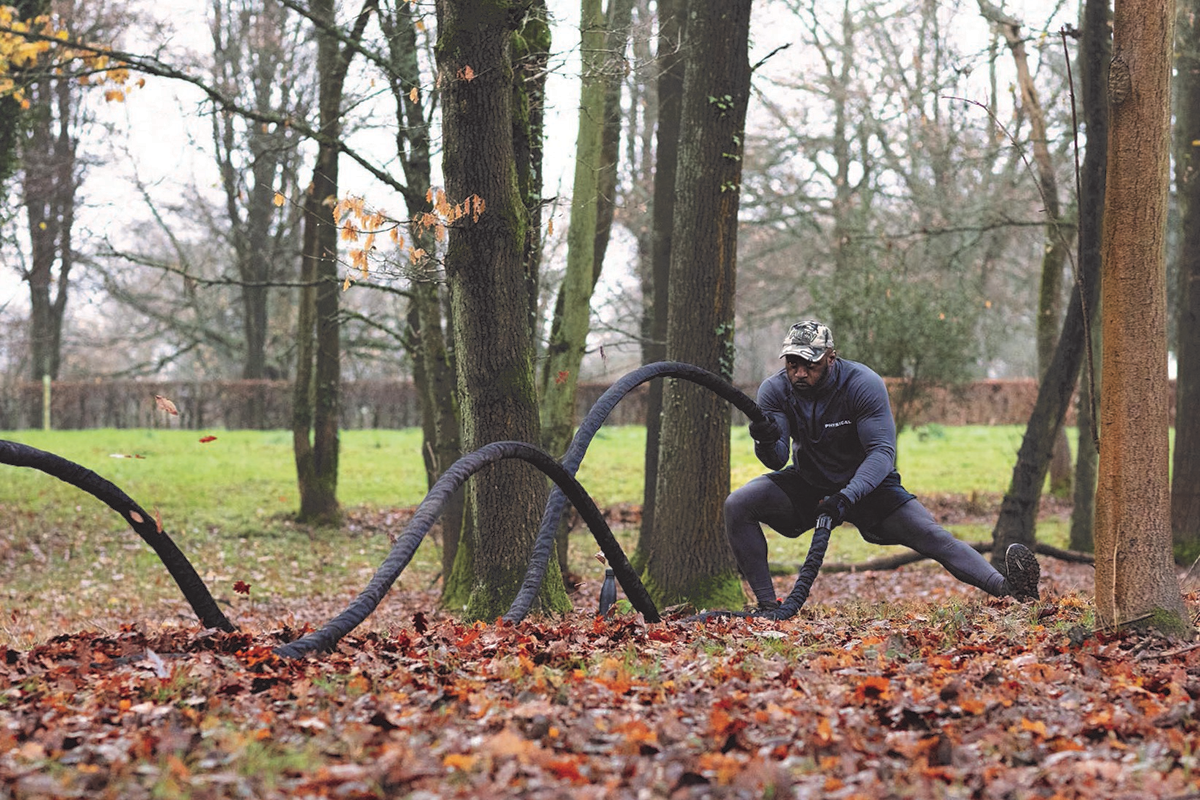Major Events: Opening ceremonies at major events - what are the opportunities and challenges involved?
What are the opportunities and challenges involved in designing facilities for both sport and entertainment?
Mixing sport and entertainment is becoming increasingly popular. The NFL Super Bowl half time show is now such an iconic affair that it sometimes detracts from the main event, while opening and closing ceremonies at Olympics have become a method of “sending out a message”.
At Beijing in 2008, a £65m ceremony which “outdid all of its predecessors in numbers, colour, noise and expense” was designed to show that China means – and is open for – business.
Four years later, London used less money but arguably more emotion to come up with “Isles of Wonder” – a love letter to Britain directed by Academy Award-winner Danny Boyle.
This year’s opening ceremony in Rio, meanwhile, might have cost a fraction of its predecessors’, but boldly tackled some sensitive issues – such as climate change – at a time when a part of its population had been protesting against the Games.
But what is the value of opening ceremonies and other entertainment at sporting events? What do they require from the architects who design the venues? How can ceremonies be made better? We asked the experts.
Jerry Anderson,
Senior Principal and Global Board Chair,
Populous

Most major stadiums are now designed to stage various events as a part of their business plans. Stadium developments can’t usually depend on 12 to 15 major games or matches per year and still expect to be economically viable.
Because of this, stadium designs – especially Populous designs – take into account the elements of flexibility and infrastructure which will support future events such as concerts, alternative sports, and various exhibition shows. We also evaluate the internal spaces which support artists, such as tunnels for wheeling the shows onto the center field, PowerPoints for extravaganzas, rigging points for overhead requirements including décor, display, or lighting, as well as audio and video board features.
We design for flexibility. If we’re designing an American football stadium, we make sure the entranceways can convert to larger openings for big displays, and can be made smaller to provide more seating when space is not needed.
Naturally, trends change over time, so it’s not always possible or sensible to design the stadium for just a few specific types of shows or events. This is where we’re able to use our knowledge of the different events, as we’ve worked with them at dozens of Super Bowls, World Cups, Olympic Games and the like, to anticipate what the future might hold.
It’s also true that there are successful designs established for singular spectacular events. In particular, the opening and closing ceremonies for the Olympic Games, the FIFA World Cup, the Rugby and Cricket World Cups, and the Asian and Commonwealth Games have required us to design major elements of the stadium hand-in-hand with the show elements. These design features are carefully considered, not only for the shows themselves but also for the legacy of the stadium and how it is used and embraced in the future; this process has shaped many of our main stadium designs.

Peter Ayres,
Director for building & places ,
AECOM

Opening ceremonies at events like the Olympic Games showcase the host city and country to the world. But they are often also the first opportunity to reveal a new and much-anticipated venue.
While the ceremonies are no doubt a memorable experience for those in attendance, the real audience is sitting at home. How the show will be broadcast to the world will be a primary focus when the ceremony is devised, not least because the event is an opportunity to highlight the host country as an attractive destination. The influence of these types of ceremonies is so significant that they are often considered during the design phase of a venue.
Opening and closing ceremonies play an important role in capturing the euphoria of the Games, often after a turbulent lead-up. They are also becoming braver at tackling serious issues such as human rights, equality and diversity. Rio’s opening ceremony highlighted the important issue of climate change.
This theme was pertinent not only because Brazil is a country on the front line of the impacts of climate change, but also because sustainability has been woven into the design of the Rio Olympic Park and its sporting venues. AECOM’s masterplan for the Park focused on creating a lasting legacy for Rio and post-Games it will become one of the city’s most sustainable districts.
Opening and closing events embody the unique characteristics of their host. They show off national pride and are grounded in the country’s culture and lifestyle.

David Zolkwer,
EVP & Director of Public Events,
Jack Morton

We need to make ceremonies work harder. They’re traditionally a platform for the host city to celebrate the unique qualities of its particular time and place; engage communities, create enduring memories, to capture and convey unique city-brand stories, and in the process leave behind a meaningful social and economic legacy. And, of course, they should recognise and celebrate the sporting events they herald.
That’s all good – but there’s even more value to be mined here. While it’s easy to think of a ceremony as a chance to offer a ‘celebratory snapshot’ of a people and a place, more and more these days I’m asking “Really? Why? Who cares?”.
In an increasingly conflicted world, I think there’s an opportunity to place more of the value of a ceremony in its power to serve as a vehicle to celebrate what we have in common rather than what sets us apart, to explore universal dreams and aspirations – what we can be rather than what we are; to look outwards and forwards rather than inwards; to explore the human condition; to connect.
These occasions are global broadcast events, a convening of a wildly diverse global community bonded by sport. What can we say and do in these ‘real time’ moments that no other medium or genre would allow? For me, it’s in the answer to that question where the true value of these occasions lies.
"In a conflicted world, there’s an opportunity for ceremonies to celebrate what we have in common, to explore universal dreams and aspirations – to connect."

Membership Manager
Membership Manager
Recreation Assistant
Duty Manager (Dry)
Swim Teacher
Swim Teacher
Chief Executive Officer, Mount Batten Centre
Swim Teacher
Swimming Teacher
Swimming Teacher
Company profile

Featured Supplier

Property & Tenders
Company: Knight Frank
Company: Belvoir Castle
Company: AVISON YOUNG
Company: London Borough of Bexley
Company: Forestry England















